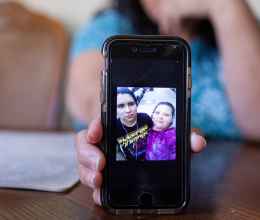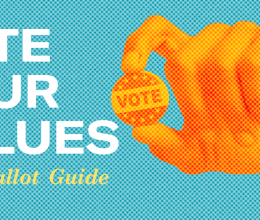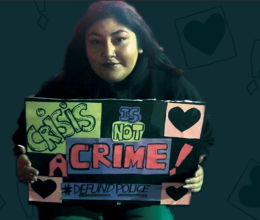
The ACLU/SC and the law firm of Munger, Tolles & Olsen have discovered urgent new information about the extent of forcible drugging of immigrants by the Department of Homeland Security and the policies that govern it. The information is detailed in legal papers being filed Tuesday, October 9, that seek an immediate stop to the government's program of drugging immigrants with powerful anti-psychotic medicine against their will and without proper medical oversight.
The government now admits it routinely gives powerful anti-psychotic drugs to immigrants before deportation. In many cases these detainees have no preexisting psychiatric conditions, and the drugs are administered was prescribed by low-level medical personnel and without a court order.
In answers submitted to Sen. Joe Lieberman before her confirmation hearing as chief of U.S. Immigration and Customs Enforcement on Sept. 12, Julie Myers admitted that 56 detainees 'received psychotropic medications during the removal process' during the seven-month period from October 2006 until April 2007. More than half - 33 - were forcibly drugged despite having no preexisting psychiatric condition.
Myers did not provide data for the use of psychotropic medications before October 2006, but based on more general data that she provided, the ACLU infers that hundreds of unauthorized druggings have taken place since 2003. During that time, DHS ordered 1,073 'medical escorts,' often low-level medical personnel prepared to forcibly drug immigrants during deportation. Although earlier government statements gave the impression that such druggings were extremely rare, the newly-released numbers indicate that the practice is routine and widespread.
Myers also referred to a new ICE policy that claims to require a court order before forcibly drugging detainees during deportation. Court documents show that the policy was adopted two days after the ACLU of Southern California and the law firm of Munger, Tolles & Olsen filed a federal lawsuit on behalf of two immigrants, Raymond Soeoth and Amadou Diouf, who were drugged against their will and without proper medical oversight.
In her answers to questions before her confirmation hearing, Myers stated, 'I am aware of, and deeply concerned about reports that past practices may not have conformed to ICE detention standards.' Myers was confirmed Sept. 26.
However, the new policy does not describe what court would order the druggings, whether detainees would be able to challenge the order, or what the requirements for obtaining a court order are. The policy also contains an exception for 'emergency' druggings that would not require a court order, and the government has claimed that many drugging incidents, such as those involving both Diouf and Soeoth, were 'emergencies.' Nor did the government give any indication that its new policy was actually being implemented in the field.
These statistics are the first glimpse at a largely unknown program of drugging detainees that has gone on for years with no oversight. Previously the government had admitted only that they forcibly injected immigrants with powerful drugs 'as a last resort' in order to render them less 'agitated' for deportation. Yet detention standards from the Bureau of Immigration and Customs Enforcement (ICE) state that detainees may not be forcibly medicated if they are not mentally ill, simply for 'staff convenience.'
In light of the new information, the October 9 filing asks U.S. District Court Judge Terry J. Hatter to reconsider his earlier decision to postpone briefing on the ACLU/SC and Munger, Tolles & Olsen's request for a preliminary injunction to stop the forced drugging program.





